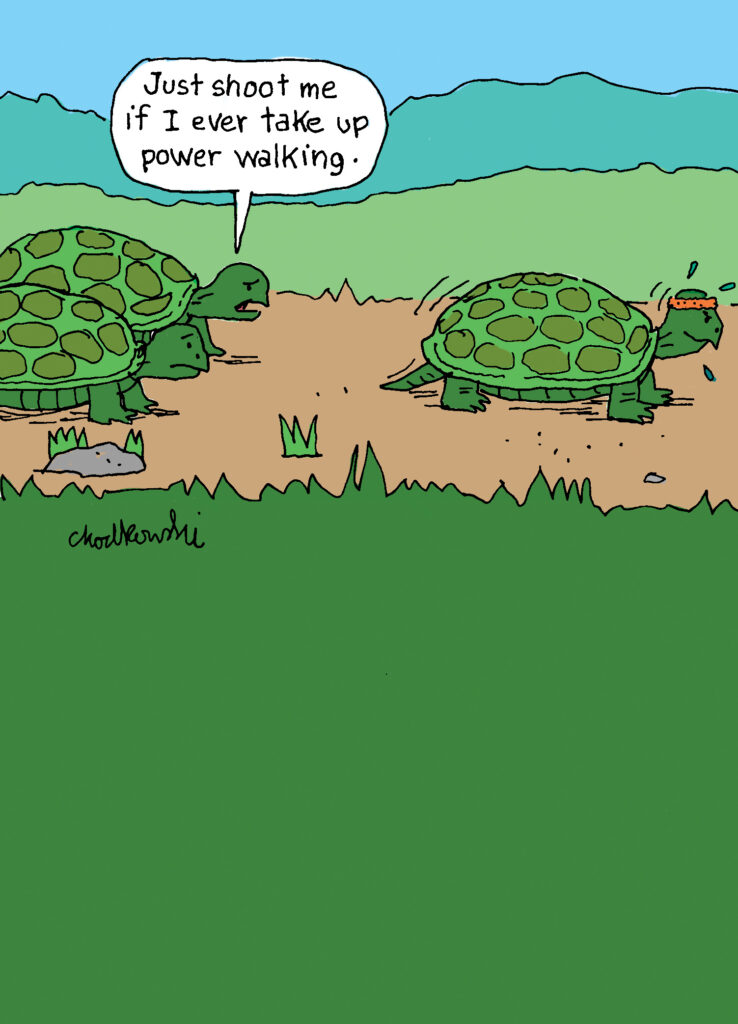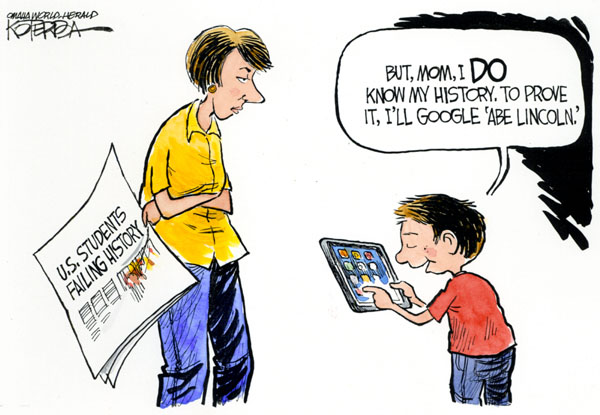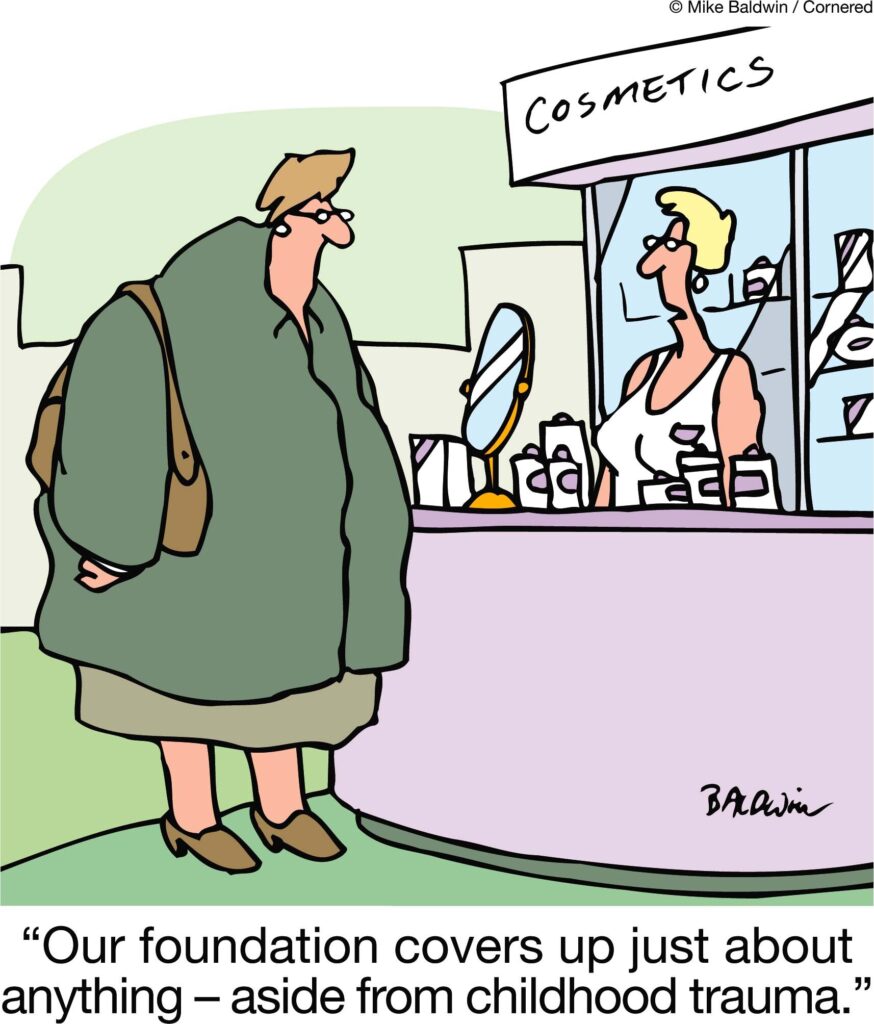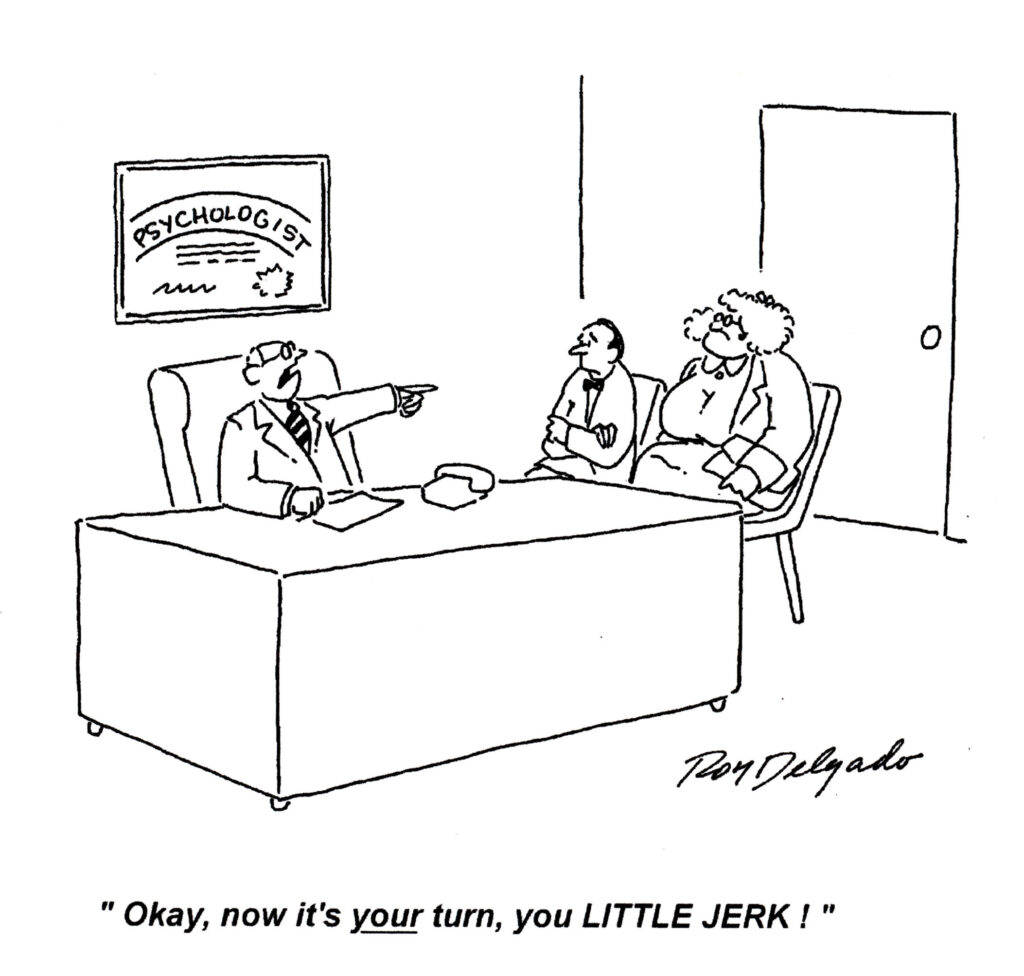
Walking is good exercise. Actually, any type of movement—unloading the dishwasher, raking leaves, cleaning the house—is beneficial and trumps passivity. For many people walking is a good option because it’s so simple and available.
Here are three suggestions that will make walking more beneficial.
Walk on uneven surfaces.
Instead of walking on a treadmill or a flat surface, walk on uneven surfaces like grass or outdoor natural terrain.
When we walk on even, predictable surfaces, our bodies and minds quickly go on autopilot. But when the ground we walk on is irregular our muscles must constantly adjust to the changes.
A recent study from the University of Michigan examined the physical differences between walking on uneven terrain compared with smooth surfaces. Using a special treadmill that mimicked walking over trails, grass, and uneven pavement, the researchers learned that walking on a surface that varied by only one inch from a flat, smooth surface increased calorie-burning by 28 percent.
Walking on uneven surfaces also demands more mental effort. For instance, don’t underestimate how much brain power is required to do simple tasks, like reaching out and grasping a cup of coffee. Millions of neurons are firing as you make simple moves. When you walk on uneven surfaces your mind must constantly calculate how to negotiate those movements, and that’s good mental exercise.
Walk barefoot, preferably on dirt.
Grounding, or earthing, is the theory that barefoot contact is beneficial. Grounding happens when you walk barefoot on grass, dirt, sand, gravel, or concrete.
One reason direct physical contact with the ground might be beneficial is that the earth’s surface has a negative charge and is constantly generating electrons that could neutralize free radicals, which act as antioxidants. Research also suggests physical contact with the earth’s surface can help regulate our autonomic nervous system and keep our circadian rhythms—which regulate body temperature, hormone secretion, digestion and blood pressure, among other things—synchronized with the day/night cycle.
Walk on golf balls (or some other stark surface).
Reflexology is an alternative medical practice that applies pressure to specific areas of the foot. The theory behind reflexology is that specific areas of the foot correspond to organs and systems of the body. So pressure applied to the foot is thought to bring relaxation and healing to corresponding areas of the body. Several studies indicate that reflexology may reduce pain and psychological symptoms, such as stress and anxiety, and enhance relaxation and sleep. Because reflexology is also low risk, it is a reasonable option for relaxation and stress relief.
Physical therapists and massage therapists offer reflexology treatments, but you can produce similar benefits by rolling your feet on hard, uneven surfaces such as a golf ball or the edge of a table or chair. In essence, give yourself a foot massage.
I realize that parts of this post may seem esoteric and unscientific, and it may be. If nothing else, I encourage you to walk more (which is undoubtably beneficial) and experiment with the three suggestions. When I work in my vineyard, I’m barefoot, walking on dirt and grass, and it’s wonderfully therapeutic.



